What Is Wild Camping? The Beginner’s Guide to Off-Grid Camping
When you need to unplug from the busy modern world, heading off on a rural retreat can be just the thing you need to refresh. If you love camping and getting out in nature, you might be interested in going more off-grid into the wild, but what is wild camping? It’s not as scary as it might sound, and in this blog, we’ll talk you through what it entails. We’ll also tell you where you can wild camp in the UK and all the off-grid camping equipment you need for a successful trip.
Make sure you’re ready for the wild with the right tent from Boutique Camping. We have a range of premium bell tents that let you enjoy your rugged retreat with a touch of extra comfort and style.
What Is Wild Camping?
Wild camping or off-grid camping involves camping outside of traditional campsites. You won’t have access to any amenities like electricity or running water, and this experience is all about getting back to basics and enjoying a truly rustic escape from modern life.
Off-grid camping lets you fully immerse yourself in nature and is a thrilling way to get out in the open and experience the beauty that Britain's natural landscapes have to offer.
When you have a glamping tent, however, this experience is slightly different, and you can still enjoy some of your personal comforts in a more isolated setting.
Where Can I Wild Camp in the UK?
There are a few rules to off-grid camping in the UK, and wild camping is illegal in England and Wales without landowners' permission.
There are some exceptions to this rule, and you’ll be happy to know wild camping in Scotland is completely legal thanks to the right to roam rules in Scotland.
Where to Wild Camp Without Permission
Most open land in Scotland allows you to wild camp, so long as you follow the Scottish Outdoor Access Code. This is simply a set of rules and regulations on how to conduct yourselves and look after your surroundings when camping.
Dartmoor National Park is the one exception in England where you are allowed to go off-grid camping. You are permitted to camp for up to two nights in certain areas of the park, provided you follow a no-impact approach.
Where You Need Permission to Wild Camp
If you want to wild camp anywhere in England, Wales or Northern Ireland (other than Dartmoor), you need landowners' permission. If you camp on private land, you’ll be breaking the law and can face fines and even imprisonment if you refuse to move.
Is Off-Grid Camping Safe in the UK?
Many people think that heading off to an isolated area can be dangerous, but with the right precautions and off-grid camping equipment, you’ll be set for any adventure.
Familiarise yourself with the area you want to wild camp at before you set off, and make sure you have exit, entry and emergency points noted. Also, ensure you’re aware of the local wildlife so you can keep yourself and other animals safe when camping. It’s also good practice to learn how to lock a tent when camping to keep wildlife away from your valuables.
How to Pick the Right Wild Camping Spot
In order to stay safe throughout your trip, here are a few tips to help you find the best off-grid spot:
- Use Google Maps, a SatNav or a physical map to identify the types of terrain, roads and bodies of water nearby.
- Arrive early in the day with plenty of time to set up whilst it’s still light and a comfortable temperature.
- Scout your camping spot to ensure there are no obstructions or hazards like debris or flood plains where you’re pitching.
- Search for areas with a level of shade or natural shelter. Areas with woodlands or hillsides can protect you from wind and rain, but be sure not to camp at the base of a hill in case of floods.
What Rules Are There When Wild Camping?
When it comes to using off-grid camping sites, there are some crucial rules and behavioural codes to adhere to, most commonly known as the “Leave No Trace” rules. These rules are 7 steps you should take whenever you go camping outdoors to ensure you preserve the natural environment and surroundings.
- Plan and Prepare Ahead - Visit in small groups and learn the rules, regulations and weather in your chosen area.
- Travel and Camp on Durable Surfaces - Only camp on durable surfaces that are maintained or designed for camping.
- Dispose of Rubbish Properly - Hold on to litter to dispose of it correctly. Avoid washing clothes and crockery in fresh-water streams or rivers. Dig small trenches when using the bathroom.
- Leave What You Find - Leave any artefacts or historical structures intact. Don’t interfere with the landscape by adding or removing plant life. Be respectful when photographing your journey.
- Minimise Campfire Impact - Keep fires small and avoid using harmful chemicals. Ensure all embers and ashes are extinguished. Take extra care to avoid scorching the earth and grass.
- Respect Wildlife - Only observe wildlife from a distance, do not feed or approach any animals. Protect your tent and belongings, and store food safely away.
- Be Considerate of Other Visitors - Keep noise to a minimum and be aware of other families and campers on public sites and trails. Take breaks and set up camp away from other campers to allow for privacy.
What to Pack for Your Trip
When you’re away from all standard living facilities, you need to pack smart and ensure you’ve got all the essentials for rural living.
Basic Camping Gear
- A Tent - If you’re choosing to go glamping, one of our classic bell tents is the ideal choice.
- Sleeping Bag and Mattress - These should be well insulated as temperatures drop at night, especially in open spaces.
- Groundsheet or Tarp - To place underneath your tent to keep you dry and warm.
- Towels and Bedding - Opt for lightweight materials to reduce weight and increase space in your bag when travelling.
- First Aid Kit, Map and Compass - Plasters, bandages and any medications should be included, as well as a way to navigate your surroundings.
- Toiletries - Toothbrush and toothpaste, soap, baby wipes, etc.
What Tent Should You Use When Wild Camping?
“We’d recommend one of our inflatable tents. They’re inflatable, lightweight and compact while also giving you a bit of luxury when wild camping. The Vela Air Tent is a great choice. This tent cuts pitching time and gives you maximum inside space by removing the need for an internal pole. It’s also made from our amazing Oxford 100 fabric, so you can experience the weather-resistant and breathable benefits of all our other tents.” - Ollie at Boutique Camping
Wild Camping Essentials
- Gallons of Water, Water Purification Tablets or Filters - With no access to running water, this is perhaps the most essential thing to bring. You’ll need to bring your own water supply for drinking, cooking or washing. If this is not possible, you will need to camp near fresh water and purify it ready for cooking and drinking.
- Camping Stove - You won’t be able to pop to the shop in the wilderness, so you’ll need to bring your own food and cook meals yourself. For this, you’ll need either a wood-burning stove or a gas-powered hob.
- Cooking Utensils - You can’t cook without any equipment, so try to bring along one trusty pot or pan you can use for multiple meals. If you’re glamping, you have the luxury of bringing more stove accessories to make some extravagant meals.
- Dried Food and Fresh Ingredients - If you’re exploring the open all day, you need substantial meals to keep you fuelled, not just dried snacks and tinned food. Bring along staples like pasta and rice, and some dried spices to spruce up your dinners.
- Toilet Paper and Trowel - You won’t have any portable toilets to do your business, so nature will be your bathroom!
- Power Bank or Portable Charger - If you need your electronics for navigating or communicating with fellow campers, it’s essential that you keep your devices powered during your trip.
- Plastic Bags - If you get caught in rain, you’ll need to keep your wet clothes separate in a waterproof plastic bag to protect your belongings as well as your tent.
Make sure you have everything you need when you head off on your adventure with our ultimate glamping checklist.
The Best Places for Wild Camping in the UK
Isle of Skye, Scotland
The Isle of Skye is an absolutely breathtaking spot for off-grid camping in Scotland. Unwind in your tent at night with the green Cuillin hills in the distance and dramatic rock formations as the perfect backdrop for any family photos. Camping in the Scottish Wilderness comes with harsh weather, with heavy rain and also snow in colder months. Ensure you have a waterproof tent with a good hydrostatic rating as well as extra clothing layers to keep you warm.
Snowdonia National Park, Wales (With Permission)
Snowdonia’s iconic mountain peaks offer a magical escape for any wild camper. Whilst it’s not completely legal to camp off-grid in Wales, if you seek permission from the landowner, there are plenty of places for you to enjoy for a night or two. Whether you’re heading off to conquer Snowdon or simply sitting back to relax, it’s especially important to follow the “leave no trace” laws whilst on private land.
Dartmoor National Park, England
One of the only places in England where you can legally wild camp, the rolling moorlands of Dartmoor are the perfect place for campers to experience historical and cultural sights galore. Witness a range of wildlife come to life at night from the comfort of your tent or utilise a stargazing tent to see the skies light up above the woodlands.
Get Ready For Your Next Wild Camping Adventure
Off-grid camping is one of the best ways to explore some of the most beautiful, often unseen sights across the UK. Whether you’re trekking across the Scottish Highlands or waking up to enjoy the sunrise over Snowdonia, wild camping offers a refreshing sense of freedom.
Get ready for whatever the wild brings with our range of premium glamping accessories and tents at Boutique Camping. We’ve specially designed our own range of tents to be able to withstand all types of environments.
If you’re looking for advice on the best off-grid camping equipment, get in touch with our camping experts, and we’ll be happy to help!
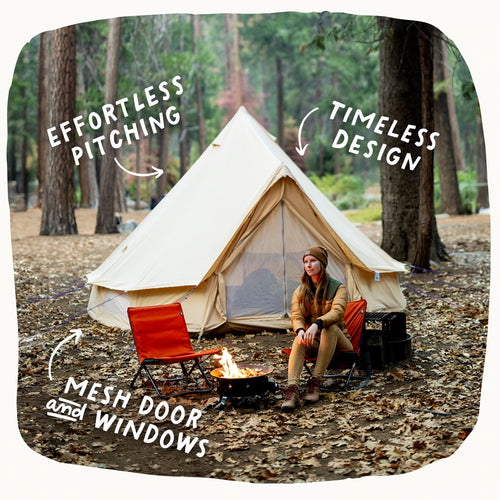
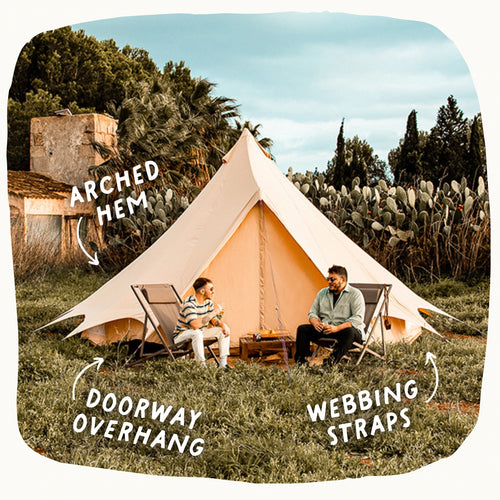
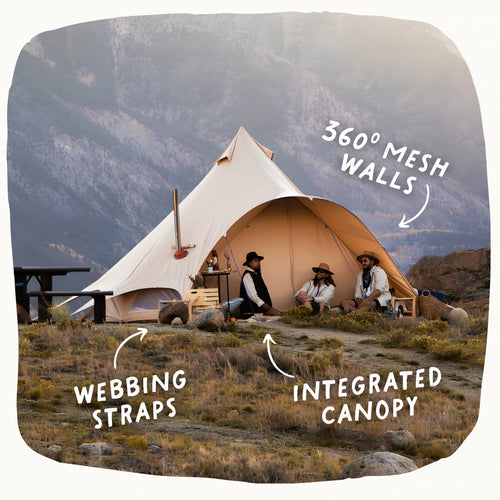
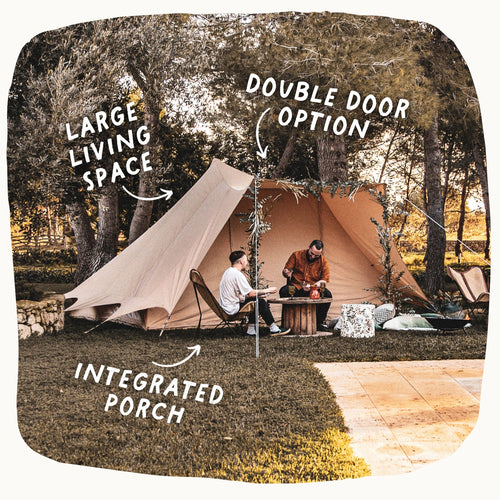
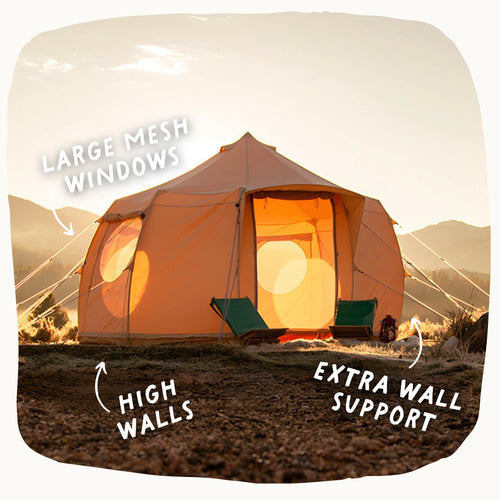
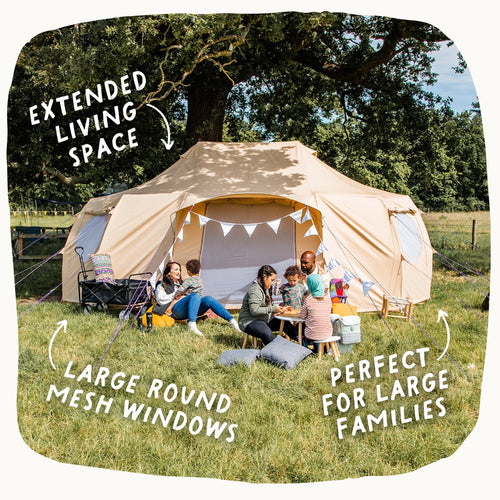
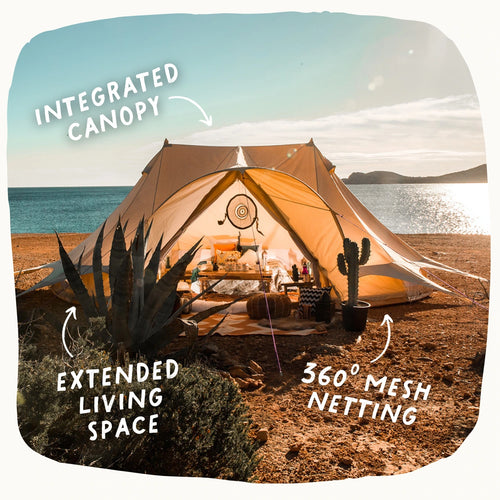
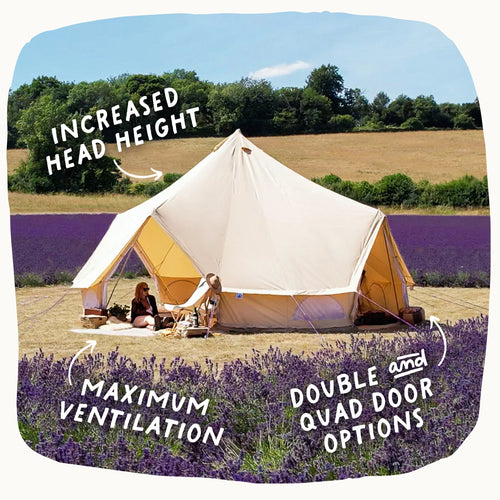



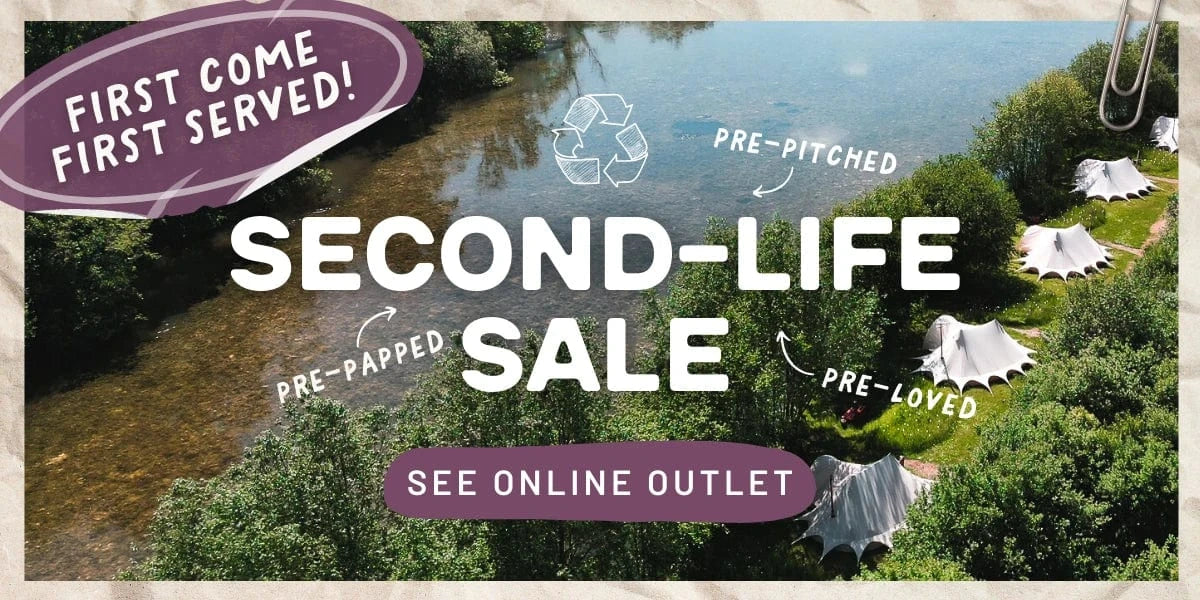
Laissez un commentaire